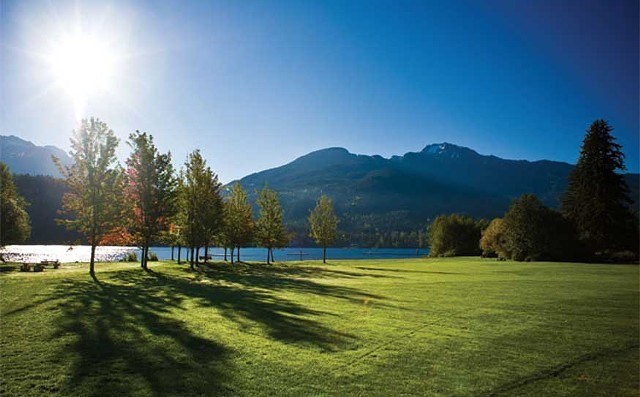Protect Alta Lake
I'm pleased to see studies taking place on Alta Lake. Over the years, I've seen many changes and I've been very concerned.
We've had property on Alta Lake since the '60s. As long as I can remember, there have been septic tanks on properties on or near the lake. The main sewer line did not go in until the late '70s and at that time, the homes on the east side of the lake were connected. From the '60s and into the '80s, we got our drinking water from a line into the lake. It is hard to imagine that it was once that clean. I'm very concerned about this new threat to the health of Alta Lake.
Septic tanks likely contribute to the problem, but the biggest change I have seen that can directly contribute to this problem is a great increase in the number of party barges on the lake. Ten years ago, there was only one party barge. Today, there are more than 30 barges. I'm not surprised that human-caused "nutrient loading—so poop and pee" ("Charting long-term change in Whistler's lakes", Pique, April 18) has increased greatly, because I have seen 10 to 30 people on one barge, drinking all day. I've seen them peeing off the barges and even cleaning their dishes in the lake after their barbecue.
Many of the barges themselves are pollutants. Many are made from oil drums, styrofoam, and cement board and other materials that break down, polluting the lake and threatening wildlife. It was extremely upsetting to find a barge breaking down in the wetlands beside the River of Golden Dreams.
It had an old mattress on it and chunks of styrofoam were breaking up into smaller bits. Another rotting at the mouth of Scotia Creek. Other barges left to rot had gas tanks, propane tanks, motors, and barbecues left on them. One even has an old fridge. There are a few barges in use that have electric motors, but most have gas-powered motors, old polluters, that burn oil. Many are extremely noisy and disturbing since they are running up and down the lake all day and evenings. Jet skis were not allowed for this reason.
Alta Lake was originally a fishing lake and for sailing and paddle sports. When not in use, the barges are often parked or abandoned near or in the wetlands and Alta Lake Park. We should not tolerate that.
With so many party barges and, unfortunately, so many individuals who don't use them responsibly, something needs to be done to protect Alta Lake from the damage they cause, directly and indirectly. I think it would make sense to study the proliferation of the barges and form some bylaws around them so that the municipality can manage their impact on the environment and peaceful enjoyment of the lake by all.
We only have one Alta Lake!
Ken Mason // Whistler
UBC helpers come to Whistler
Annually, University of British Columbia (UBC) helpers have been assisting with the Whistler Cantando Music Festival with the front desk reception, adjudicators, setting up equipment, warm-up rooms, evening concerts, clinics, etc. that host approximately 2,000 secondary and middle music groups from many provinces across Canada.
This year, a record number of UBC helpers will be assisting with two music festivals: the Whistler Cantando Music Festival from April 25 to 28, and Con Brio Festival from May 2 to 5. Both festivals feature school wind ensembles, concert bands, orchestras, jazz bands, drumline, and choirs that highlight artistic talent, and facilitate growth—They are critical music-making opportunities to showcase musical performances.
The UBC helpers truly enjoy the exciting music festivals in the world-renowned Whistler resort! It is a community-building event that showcases the outstanding music groups.
Karen V. Lee // UBC
WHA changes overlook disability
(Editor's note: The name associated with this letter has been changed to protect the writer's identity.)
After reading the recent article in the April 18 edition of Pique, "Whistler Housing Authority Looks to Refine Eligibility," I am very alarmed to see that one proposed change to eligibility would be that the applicant for WHA rental housing is required to work a minimum of 30 hours instead of 20 hours per week.
As someone who currently receives ongoing disability payments for a prior injury/illness, depending on my ability, some months of the year I am able to work full-time 40 hours, but at other times when my health restricts me, I go down to 20 hours a week, and my income is supplemented by my disability payments.
That would mean that I could potentially be ineligible for WHA rental housing?
I am a year-round, permanent Canadian citizen living and working in Whistler. Living with a disability that affects my ability to consistently work full-time means that, for me, housing affordability and stability is in some ways MORE important and necessary than for many others who are also waiting for WHA rental housing.
I strongly urge WHA to take a closer look at this proposed change to eligibility and to avoid any possibility of discrimination against:
1) people living with disabilities; or
2) people with different sources of income, including disability payment or other form of assistance; or
3) people whose weekly hours of work may fluctuate throughout the year.
Emily R. // Whistler




